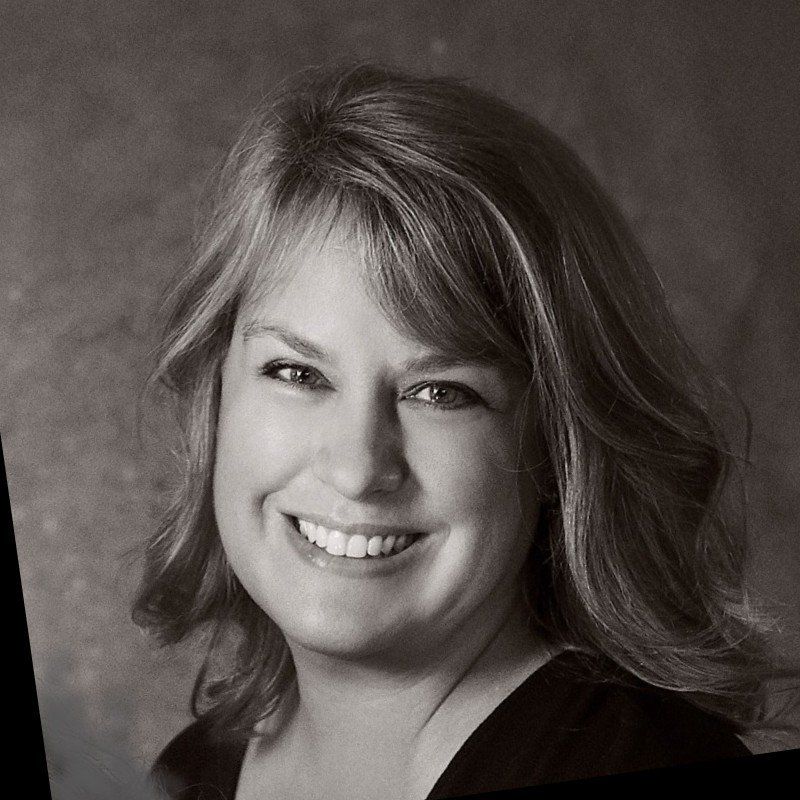EPISODE TAKEAWAYS:
- Women, despite their financial contributions, are more likely to leave their job in order to caretake for their family.
- Fathers are commonly misunderstood as "lazy" or "unambitious" for taking their full paternity leave, if any at all and how to create cultural change for men in the workplace to be equal partners.
- Positive ways that organizations can support their employees and how many are already implementing programs to make a difference in building equitable team members.
- The unfair advantage of not giving birth: job acceleration and success earlier.

Krista Ruhe, Vice President Strategic Marketing and Communications Programs at S.A.P.
INSIDE THE EPISODE:
Krista Ruhe is the Vice President of Strategic Marketing and Communications Programs at S.A.P. and the driving force behind the HR/employee tool and resource, Back to Best.
Many organizations and parents' everyday routines came to a screeching halt in 2020 when the pandemic hit. The childcare crisis due to COVID-19 was real, and without solid childcare solutions early on, there were major changes in talent retention and the future of parents in the workplace.
In this conversation, Krista Ruhe enlightens us about the statistics: 2.3 million women left the workforce in 2020. Why? Working moms either had the leverage in their jobs to take the time to care for their children, or—they didn't—and they left anyway.
Krista goes on to elaborate on these statistics, that 44% of women reported that they were the only ones in the household providing childcare in 2020. The burden of childcare has continued to remain on the women in the family. In this modern age, regardless of the fact that many women also provide financially for their families, they continue to be the default parent in the household for childcare.
There are also overlooked problems when it comes to working fathers as well.
Despite the growing culture shift in the media with phrases often used like “parenting out loud” and “self-care,” there seems to be a misconception that most men who might take off of work to care for their children, or take paternity leave are among those who either don't want to do the work or care about the tasks and projects they leave behind.
We do know that studies show that fathers who take their paternity leave, or time off from work to be with their family during this special time, help to eliminate postpartum depression in their partners, can better bond with their baby, and give themselves the care and space that they need to get back on track with their everyday lives.
Unfortunately because of these cultural differences, men simply don’t take their paternity leave, or don’t take all of the time that is provided by their organizations.
Krista says that the best way for these changes to be made is to model good behaviors at the senior level in these organizations. Men in the workplace may set their own boundaries as well, and normalizing personal time for fatherhood is growing in popularity within these larger companies.
“We need to see these fathers celebrated for being equal partners.” Krista says.
Dr. Whitney asks Krista about employees advocating for themselves, and the best way their organization can support them. Krista thinks that the best way is through an organizational change where it is culturally acceptable for a man to take time off to support his family emotionally and to bond with their new baby. She says it is called “internal marketing” where organizations encourage employees to focus on their well-being in order to come back ready and eager to work without the mental and physical load of these inescapable and sometimes stressful times. And these models have worked in large well-known organizations across the country.
This means broadening voices and culturally changing dynamics in the workplace when it comes to leadership roles.
Dr. Whitney asks about burnout in relation to working parents and Krista shared one of her favorite quotes:
“Burnout shouldn’t be the price we pay for success” - Ariana Huffington
S.A.P. already has great internal programs in place to help with the mental load of work and home life like “Pledge to Flex.” A trust-based environment where employees vow to do their work as long as they can get it done—however, and, wherever—they feel like it.
Krista had some of her own personal experiences with this supportive culture that the S.A.P. provides when she had to be the caretaker of her elderly parents. She felt supported by her colleagues, however she was not doing her best work. Her support network at work was amazing and let her focus on her personal needs.
When it was all said and done, her father had passed away, and she came back to work still under a load of emotional distress. She had been taking care of her family, and the needs of her grieving mother, and then tossed back into work with an impression that she’d taken a hiatus.
Krista put in a request for 4 weeks off of work to get a clear mind, and process all that had gone on in the previous weeks. It was granted! When she did come back, she was able to thrive. She said the difference was like night and day. She felt refreshed, could think clearly, and as a result, she’ll be loyal to the company and work that much harder because she values her team, her position, and the culture of the workplace.
“Well-being is important. People simply can’t succeed if they aren’t okay.”
Dr. Whitney moves on to ask about diversity in leadership roles: “If women didn’t hold the management or leadership roles, would those in position really understand the problems?”
Dr. Whitney keeps her position in the executive leadership committee, where she hopes to encounter another member who has experienced postpartum depression, childcare issues, etc… She believes if women don’t have a voice to help make these decisions, we may not see them for a long time. Dr. Whitney believes in taking care of all of the parts of who we are, and that doesn't mean that we shouldnt be categorized as unambitious.
Representation matters
Krista Ruhe brings us back to statistics from
Women in the Workplace. She says that even though men outnumber women in leadership positions, employees say that they feel supported by their women managers. Statistics also show that women are more likely to spend time on DEI (aka Diversity, Equity, and Inclusion) groups.
Krista brings up a great point for any woman to think about. What is the career life cycle for women compared to their male counterparts?
History shows for men:
20’s-30’s - Ambitious talent
30’s-40’s - Management positions / climbing the ladders
50’s-60’s - Upper management, retirement.
While modern mothers experience:
20’s-30’s - Ambitious talent
30’s-40’s - Childbearing years
Here is where it gets tricky. Most mothers who tap out to raise their children from 0-5 find it extremely difficult to catapult themselves back onto the ambitious path they were on when they started.
50’s-60’s - Lower-level roles, finding it harder to progress into higher roles and higher paying positions.
How do we fix this?
Women are completely missing out on so many opportunities. After kids, they might opt out because they have too much going on or they can’t do it well enough. The answer is in this big opportunity for career acceleration, where companies should invest in women ready to reinvest in themselves and their careers.
Krista talks about the
Opportunity Marketplace by S.A.P. which is an online learning and support portal provided by an HR department at an organization where employees are able to access tools to fuel their growth. Through their company they can find a mentor, peer connections, inspiration, guided and individual learning paths in a more systematic and automated way.
THE MODERN MAMAS MEMBERSHIP:
Join the Modern Mamas Club
The Modern Mamas Club is a safe supportive space for like minded Modern Mamas who dream of having it all, to actually succeed in that dream and lift up other Mamas to succeed along the way. It is possible to thrive, not just survive in your work life, parent life and YOU life.
✓ A Community of Mamas to Support You
✓ 24/7 Access to Dr. Whitney's Video Library
✓ Live Events, Workshops, and Hangouts
✓ Relatable Mom Rooms and Discussions
✓ Resource Library and Dr. Recommendations
✓ Fun Weekly Mini Mom-Note Emails
✓ Weekly Challenges and Prompts
✓ Journaling Downloads and More!












